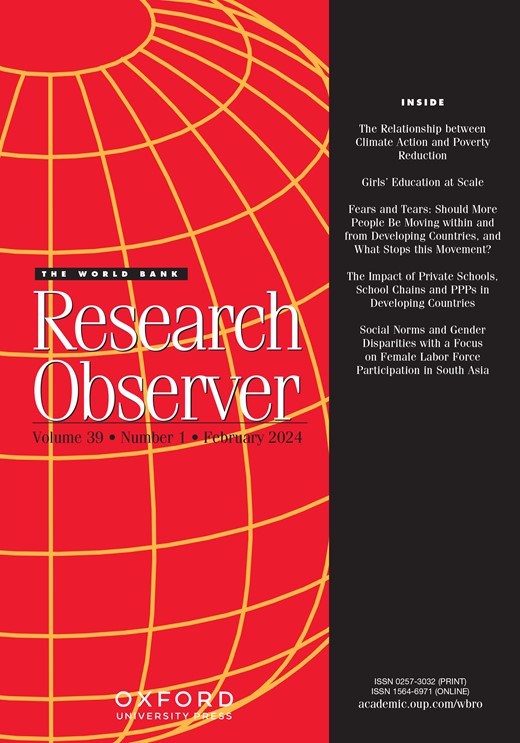缓和还是适应:这是一个问题吗?关于适当应对气候变化对发展战略的挑战的意见
IF 3.3
1区 经济学
Q1 DEVELOPMENT STUDIES
引用次数: 63
摘要
气候变化是发展战略面临的新的重大挑战。根据目前的文献,提供了一个评估应对这一挑战的框架。气候变化的存在使得至少有必要审查发展战略——即使是在表面上对气候不敏感和无污染的部门。需要采取一系列综合行动,从避免排放(缓解)到应对影响(适应),再到有意识地接受剩余损害。主动(事前)适应是至关重要的,但当损害的程度或地点不确定时,可能会有后悔的风险。地点的不确定性有利于非特定地点的行动,或反应性(事后)适应。然而,有些不可挽回的损失是无法弥补的。因此,在许多情况下,缓解可能是气候变化问题最廉价的长期解决办法,也是避免可能引发真正灾难性后果的阈值的最重要办法。为了限制预算限制阻碍发展中国家为反应性适应提供资金的风险——特别是因为气候冲击可能侵蚀财政基础——可能必须在国家内部和全球一级为转移目的建立“应急基金”。最后,需要对气候变化的影响、对减缓和适应之间相互关系的建模以及框架的实施进行更多的研究。牛津大学出版社版权所有。本文章由计算机程序翻译,如有差异,请以英文原文为准。
To Mitigate or to Adapt : Is that the Question? Observations on an Appropriate Response to the Climate Change Challenge to Development Strategies
Climate change is a new and important challenge to development strategies. In light of the current literature a framework for assessing responses to this challenge is provided. The presence of climate change makes it necessary to at least review development strategies--even in apparently nonclimate-sensitive and nonpolluting sectors. There is a need for an integrated portfolio of actions ranging from avoiding emissions (mitigation) to coping with impacts (adaptation) and to consciously accepting residual damages. Proactive (ex ante) adaptation is critical, but subject to risks of regrets when the magnitude or location of damages is uncertain. Uncertainty on location favors nonsite-specific actions, or reactive (ex post) adaptation. However, some irreversible losses cannot be compensated for. Thus, mitigation might be in many cases the cheapest long-term solution to climate change problems and the most important to avoid thresholds that may trigger truly catastrophic consequences. To limit the risks that budget constraints prevent developing countries from financing reactive adaptation--especially since climate shocks might erode the fiscal base--"rainy-day funds" may have to be developed within countries and at the global level for transfer purposes. Finally, more research is required on the impacts of climate change, on modeling the interrelations between mitigation and adaptation, and on operationalizing the framework. Copyright 2010, Oxford University Press.
求助全文
通过发布文献求助,成功后即可免费获取论文全文。
去求助
来源期刊

World Bank Research Observer
Multiple-
CiteScore
12.60
自引率
1.20%
发文量
8
期刊介绍:
The World Bank Journals, including the Research Observer, boast the largest circulation among economics titles. The Research Observer is distributed freely to over 9,100 subscribers in non-OECD countries. Geared towards informing nonspecialist readers about research within and outside the Bank, it covers areas of economics relevant for development policy. Intended for policymakers, project officers, journalists, and educators, its surveys and overviews require only minimal background in economic analysis. Articles are not sent to referees but are assessed and approved by the Editorial Board, including distinguished economists from outside the Bank. The Observer has around 1,500 subscribers in OECD countries and nearly 10,000 subscribers in developing countries.
 求助内容:
求助内容: 应助结果提醒方式:
应助结果提醒方式:


